What do plants need?
13.04.2022 – Plants have very different requirements, but they all have one thing in common: they are masters at getting the most out of the resources they have. However, if you want to exploit the full potential of the plant, you must ensure an optimal supply of these required resources. In this episode of WUXAL Spotlight, we take a look at what plants need for healthy growth and development.
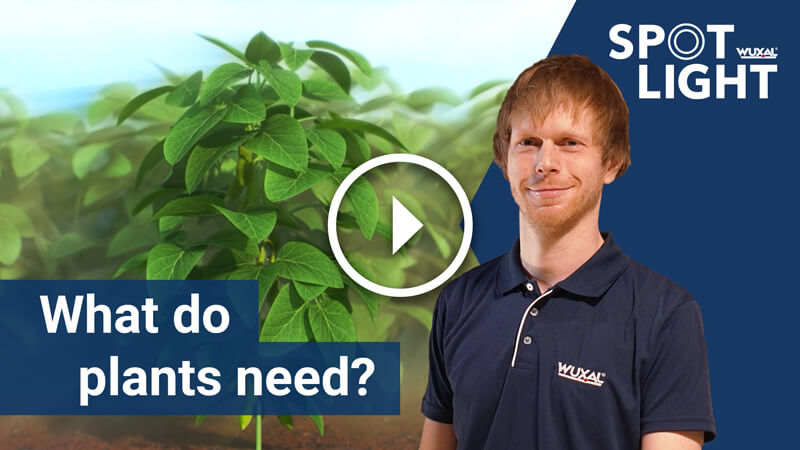
Watch the video on our YouTube channel.
The basis for growth and development
Like all living things, plants need energy as a basis for growth and development. The energy is needed to build cells and other plant parts, and to transport metabolic products like sugar or proteins within the plant. The process by which this energy is converted from solar energy within the plant is called photosynthesis.
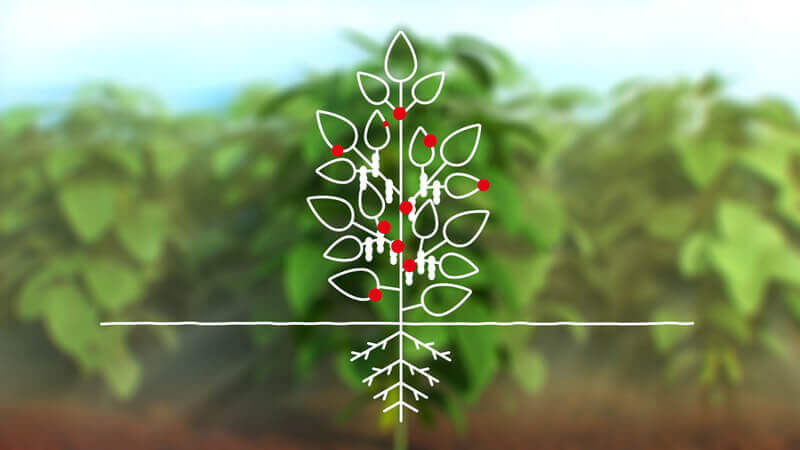
Plants need sunlight, water, CO2 and nutrients in order to properly perform photosynthesis. Light, water and CO2 are given by nature. Nutrients are mostly provided by the soil.
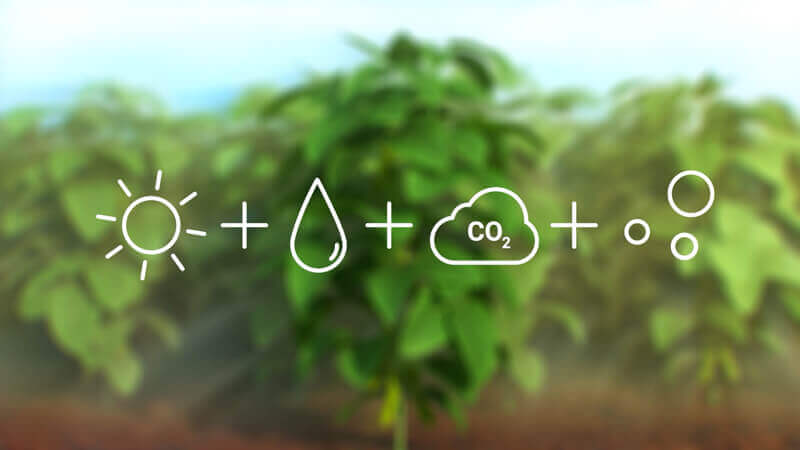
Nutrient uptake via the soil
Under optimal conditions, most nutrients can be sufficiently absorbed through the soil. But sometimes nutrients are not sufficiently available via the root system at the right time. This is mostly because the root system is not well enough developed to reach the nutrients or because the nutrients are not present in a plant-available form if they are present at all.
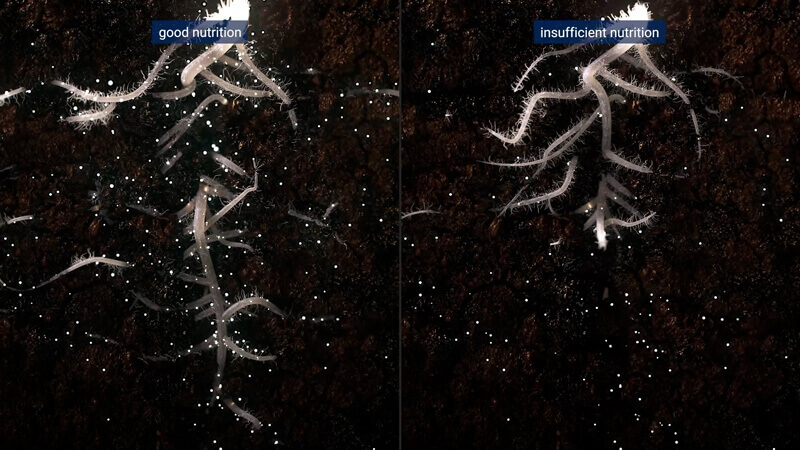
To be plant-available, the nutrients must be dissolved in water. Only then roots can absorb the nutrients and make them usable for the plant. Therefore, it often happens in the field that the required nutrients are not sufficiently available, although the reserves in the soil are sufficient.
Unfavorable soil conditions
Let me give you six examples where unfavorable soil conditions limit uptake via the soil.
The simplest case is when there is no water at all that can transport the nutrients to the roots – like when there is a drought.
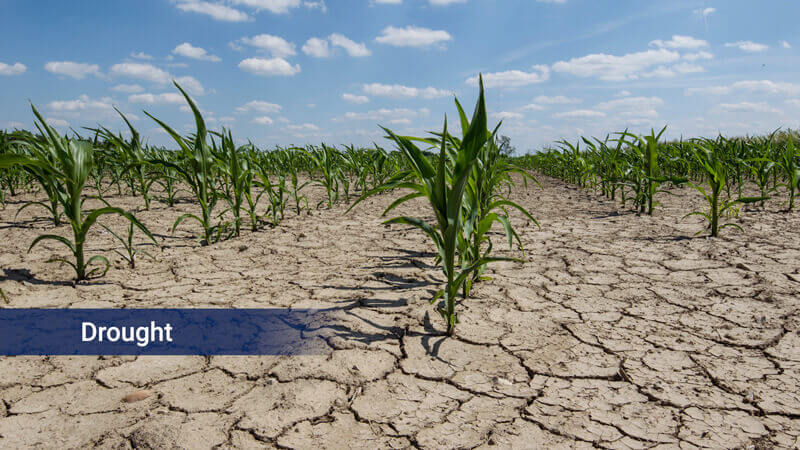
The situation is similar in the case of severe soil compaction, because then the amount and flowable water is limited as well.
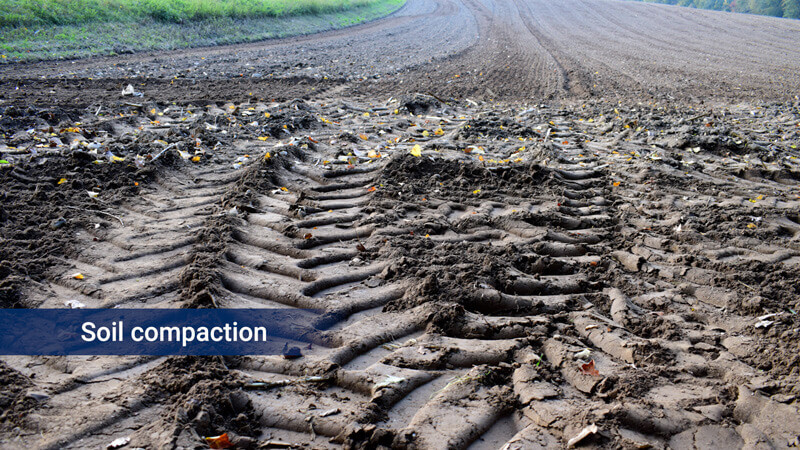
A third unfavorable condition is the occurrence of waterlogging. For proper functioning, the roots need also oxygen. However, when waterlogging occurs, the oxygen is displaced by the big amount of water.
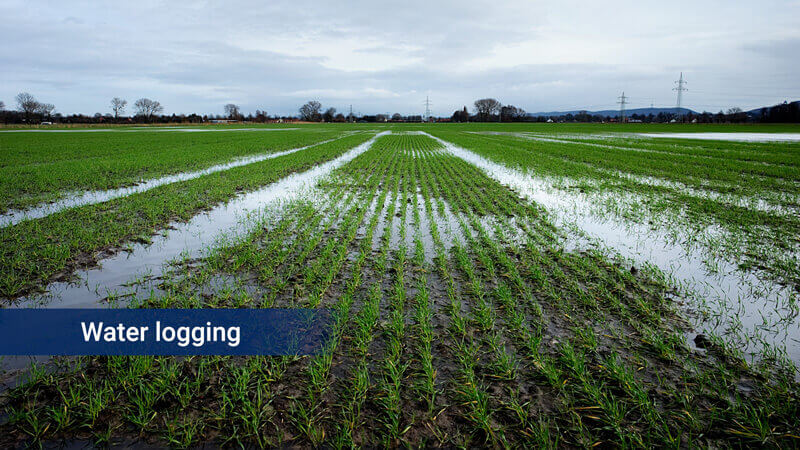
But even if the right amount of water is present, uptake may be limited.
Nutrients in soils with a high content of organic matter must first be converted by microorganisms to become available. In times of high nutrient demand, this conversion may not be fast enough for a sufficient supply.
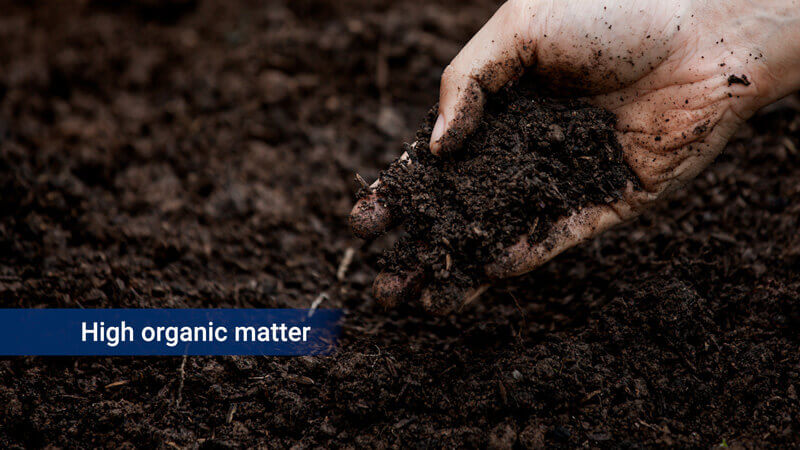
Nutrients can also be bound to clay minerals where they are not accessible for the plant in the short term and where the plant must expend a lot of energy to release these nutrients from the soil compounds. If the plant is able to reach those nutrients at all.
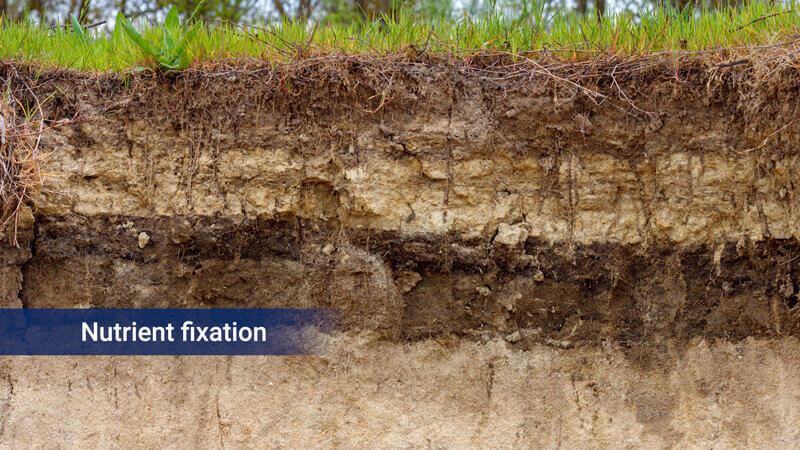
Last but not least, the pH value of the soil is a very important factor for nutrient availability. Every nutrient has a certain pH range where it is best available in the soil. For some it is in acidic ranges and for some under alkaline conditions. The right balance where all nutrients are available at least in certain quantities is important.
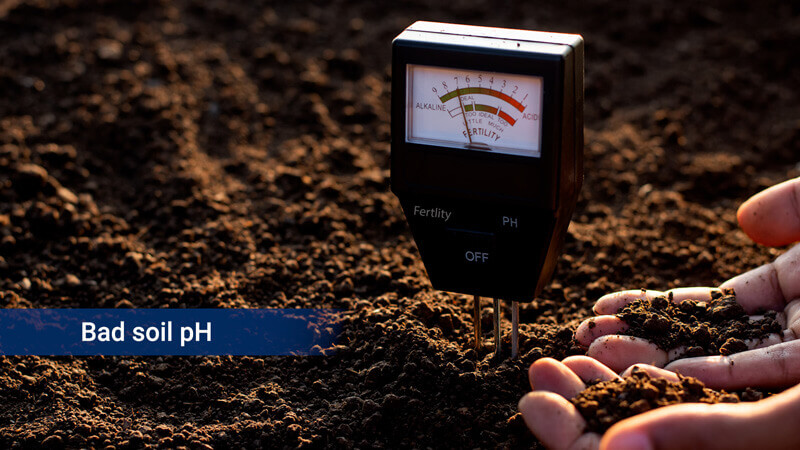
Benefits of Foliar fertilization
Understanding the limitations of nutrient uptake via the soil is important to be aware of the great importance of additional possibilities of nutrient uptake – like foliar fertilization. With WUXAL foliar fertilization, nutrients are applied on the plant surface, and they are absorbed directly by the leaf or fruit tissue. This leads to a direct supply of nutrients to those parts of the plant where they are needed most.
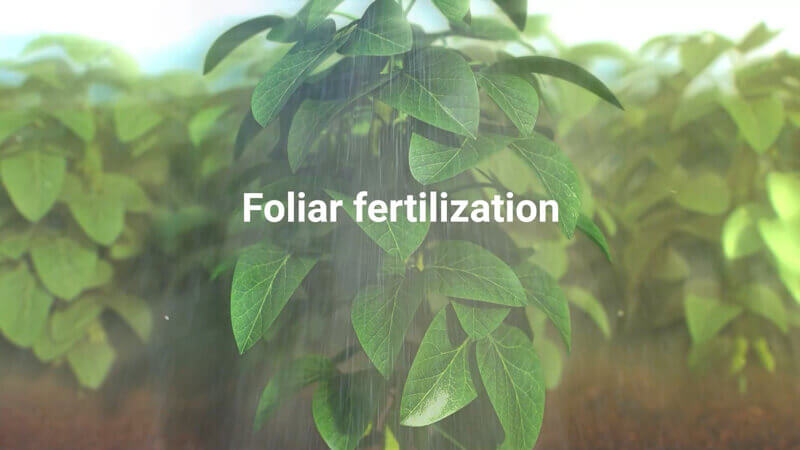
The special features of WUXAL products ensure fastest nutrient absorption that is independent from all unfavorable soil conditions. Plus, you get individually tailored nutrition compositions with highly effective additives – This is what your crops need to perform best, even under difficult conditions.
Healthy plants
A good supply of nutrients is necessary for healthy plants. And healthy plants are more resistant to external stress factors like extreme weather conditions, the applications of crop protection or pest infestations. And less stress means higher yields and quality!
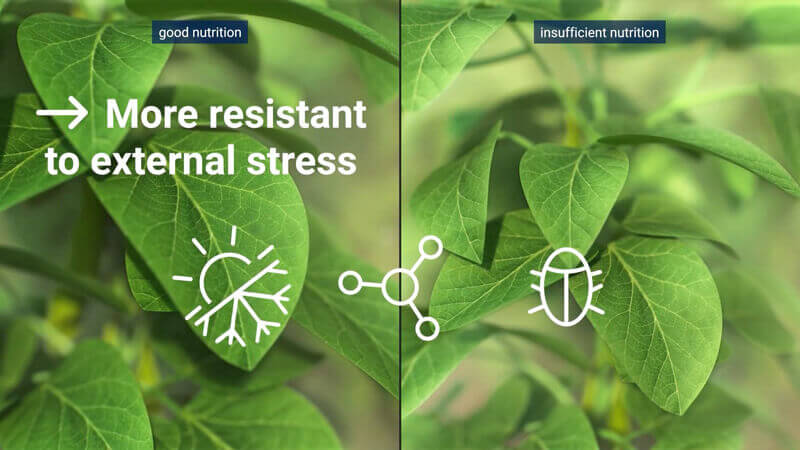
So, particularly in stress situations and when uptake via the soil is low, the right nutrients can be added quickly via WUXAL foliar fertilization.
Find out how your product of choice can push your personal business. Learn what WUXAL® has to offer and who the people behind this brand are. Sign up now!



